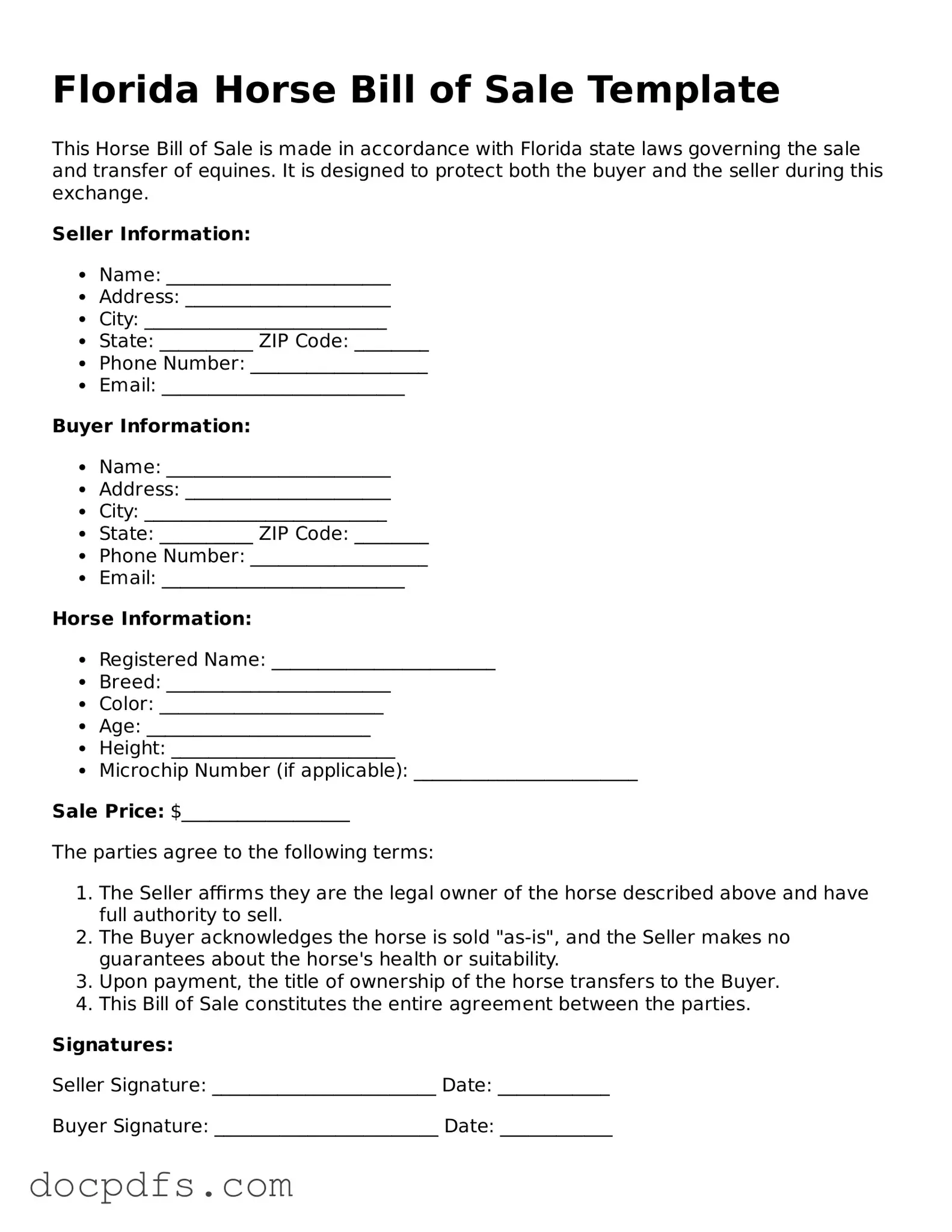Free Florida Horse Bill of Sale Form
The Florida Horse Bill of Sale form is a legal document used to record the transfer of ownership of a horse from one party to another in the state of Florida. This form serves as proof of the transaction, detailing important information about the horse, the buyer, and the seller. Understanding the nuances of this document is essential for anyone involved in equine transactions, ensuring clarity and protection for all parties involved.
Open Horse Bill of Sale Editor Now

Free Florida Horse Bill of Sale Form
Open Horse Bill of Sale Editor Now

Open Horse Bill of Sale Editor Now
or
⇓ Horse Bill of Sale
Finish this form the fast way
Complete Horse Bill of Sale online with a smooth editing experience.